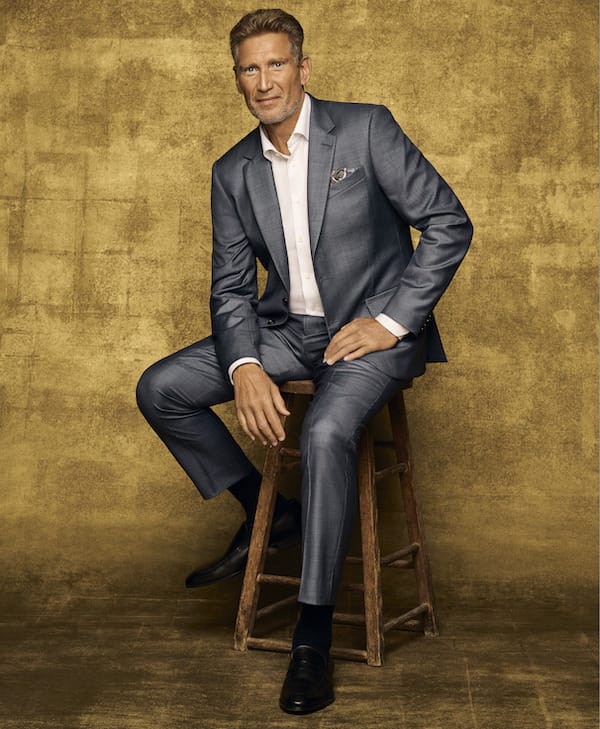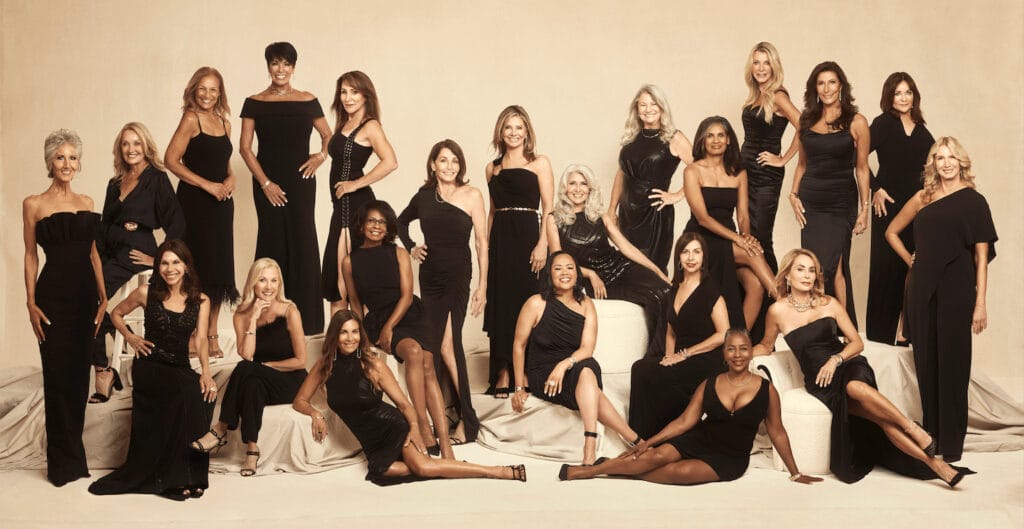Werther’s? Really?
That was my first thought when I read about the “watch party” kit that ABC, which airs “The Golden Bachelor,” sent to several senior living communities around the country to encourage residents to tune in to the TV show’s premiere together.
The kit, according to Blakeford Senior Life in Nashville, TN, included snacks, a “Golden Bachelor” bingo game, sparkling cider and Werther’s Original caramels, which have a reputation of being popular with older adults.
Was this another example of stereotyping and ageism, I wondered? Or is the show’s outreach and focus on older adults a reason to cheer?
I usually don’t watch “reality” TV shows because they seem contrived to me. But I watched an episode of “The Golden Bachelor” (the third episode, to be exact) to see for myself what the show is about.
If you’re not familiar with the program, it features a 71-year-old “retired restaurateur and doting father and grandfather” who is widowed, Gerry Turner of Indiana, looking for love among 22 “golden ladies” (as ABC calls them) who are aged 60 to 75. It’s the latest incarnation of a franchise that includes “The Bachelor” and “The Bachelorette,” which usually feature participants who are decades younger.


An early promotion for the show certainly seemed to lean into stereotypes, for laughs. As the authors of a pre-broadcast commentary in the Journal of the American Geriatrics Society noted, “A video posted on The Bachelor’s official Instagram account introducing Mr. Turner explains to the audience that: ‘He posts his thirst traps [i.e., pictures of himself] in a leather-bound album. His DMs [i.e., direct messages that can be sent on Instagram] have postage. He gets the early bird special any time he wants. If you call him, he’ll answer the phone. He doesn’t have gray hair—he has wisdom highlights. Florida wants to retire and move to him.”
Melissa Batchelor, PhD, associate professor and director of the Center for Aging, Health and Humanities at the George Washington University School of Nursing, however, said in an interview after “The Golden Bachelor” had started airing that the show was “dispelling some of the myths and misconceptions that people have about growing older and dating.” Turner and the contestants, she said, are conveying that older adults remain interested in romance, intimacy and sex; that they still can be vibrant and healthy; and that there is great diversity among older adults.
“I think it’s just great for people of all generations to watch and to learn and to kind of think about how they actually think about aging themselves and to challenge those thoughts,” she told local ABC affiliate 7News.
The writer of a commentary in Time, certified clinical sexologist Myisha Battle, said that the selection of contestants who are “all very fit and active” could be sugar-coating reality, “reinforcing harmful expectations for people over 60 to be thin, with very few wrinkles, and mostly gray-hair free.” At least one health-related aspect highlighted in the show, however, is drawing positive comments: The use of hearing aids by Turner and some of the women on the show.
International Hearing Society President-elect Michael Andreozzi applauded the messaging for hearing healthcare.
“I hope the many viewers of ‘The Golden Bachelor’ will see the link between how taking care of your hearing relates to maintaining vital connections in living a fulfilled life,” he said in a press release. “This show exemplifies how acceptable and meaningful it is to address your hearing….Hearing aids can improve communications, including with medical professionals and caregivers, and open new possibilities, as the nation is learning through this series.”
George Washington University’s Batchelor, too, said: “I love the fact that when they’re doing the opening intro, that as he’s putting on his tuxedo, he puts his hearing aid on, almost like a little James Bond. I love the fact that he’s using his hearing aid, because that actually protects your brain against Alzheimer’s disease.”
And there do seem to be other good things stemming from the show.
The JAGS commentary authors, Christopher N. Kaufmann, PhD, of the University of Florida College of Medicine Department of Health Outcomes and Biomedical Informatics, and Kelly Kaufmann, Esq., said that the show potentially could “attract people to enter the geriatrics and gerontology field, inspire medical school students to obtain fellowships in geriatric care, and inspire research on successful aging,” in addition to “emphasizing the importance of healthy aging and inspiring viewers of all ages to see older generations in a positive light.”
Many senior living communities hosted watch parties for the premiere episode, generating interviews with residents and positive news coverage for providers across the country. Fifty-two Sunrise Senior Living communities hosted such parties, according to the McLean, VA-based provider.
“The watch parties weren’t just about watching a popular show; they became a celebration of life, love and the undeniable spirit that defines Sunrise. It was a moment for our residents to shine, and shine they did, proving that age is just a number, and the golden years are truly the most radiant,” Sunrise said in a press release.
With only half of the season’s shows having aired, it’s too early to issue a final verdict about the program. My experience watching one episode probably won’t change my long-term viewing habits related to reality TV, but the opportunity exists for “The Golden Bachelor” to have a net positive effect on America when it comes to older adults. As the JAGS commentary authors wrote, much will depend on the actions of Turner, the contestants, the producers and the viewers.
During the episode I watched, contestant Joan, 60, said: “As you get older, you become more invisible. People don’t see you anymore, like you’re not as significant as when you’re young.”
Those working in senior living know that older adults are significant. I’m hoping that the airing of “The Golden Bachelor,” faults and all, will lead to thought-provoking, productive discussions about aging and ageism and that senior living residents, and older adults in general, ultimately will be more visible and celebrated.
That would be a golden opportunity realized.
Lois A. Bowers is the editor of McKnight’s Senior Living. Read her other columns here.

